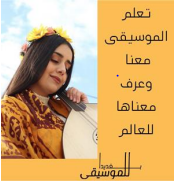Speeches Shim

Manal is a 22-year-old Kak'ai woman who was raised in a village in the Ninewa Plains in Northern Iraq. Everything changed in 2014 when the so-called Islamic State of Iraq and Syria (ISIS) invaded the Ninewa Plains, and suddenly Manal and her family found themselves homeless, jobless, and their community was displaced. When ISIS committed senseless atrocities against religious and ethnic minorities in northern Iraq, most of the population fled from their ancient homelands. As a result, Manal and most of her community were displaced to a village outside Erbil.
In 2018, when the Ninewa Plains was liberated, Manal and her family returned to their village hoping they could restart their life. Sadly, their village had not been spared by ISIS’ destruction and their house was completely destroyed. Manal recalled that,
We moved [to Qaraqosh] and I lived with my family in one room for a whole year until my father was able to finish building a small house.
With few job opportunities available and Manal’s family encouraging her to stay home for safety reasons, Manal rarely left the house. She only ventured out with family members, and instead bore the household responsibility of caring for her family. After more than a year at home, Manal remembers,
“I decided I had to help myself survive in this new city. I went out and I met new friends who helped me to get involved and build a community. One of the most important decisions I made was to start volunteering at the Baghdad Women Association (BWA).”
During her time volunteering with BWA, Manal assisted with program activities that educated and advocated for the rights of women and girls in the region. BWA’s Program Manager, Bernadit Istefan, recognized Manal’s strengths early on, and Bernadit encouraged Manal to apply to a new U.S. Agency for International Development (USAID) supported program that BWA was launching alongside the Erbil-based tech organization, Re:Coded.
Manal enrolled in the digital program as a Life and Digital Skills trainee. The 15-week course introduces graphic design, digital marketing and photography skills to 27 women in the area. The women in the program are from Iraq's minority communities, including Christians, Kaka’i, and Shabak. The program also builds trust through dialogue and participation in training courses so that women see one another as resources. These activities help break down social boundaries between different ethnic and religious backgrounds, and help women build social networks that are essential to their individual and communities’ resilience. In addition, the program also includes case management services so women could confidentially discuss gender-based violence and discrimination, and learn about available resources.
Manal, as a daughter in a conservative family, faced challenges with her family on her choice of clothing, use of social media, and movement-- for most of her life she was not permitted to leave home without a male companion. However, her experience in the program gave her tools to address these issues. The program incorporated empowering dialogue sessions based on a “Women Speak Out” curriculum. USAID funded and locally implemented “Women Speak Out” sessions provided Manal with the confidence and dialogue skills to discuss her personal freedoms with her family. Feeling empowered with new information, such as women’s legal rights in Iraq, how to protect personal information on social media, and skills on negotiation and dialogue, Manal sat down with her father and persuaded him to allow the family to have internet installed in their home for the first time. When the COVID-19 pandemic caused the program to transition online, Manal was able to stay in the program. She completed the program successfully, and has continued to maintain relationships with the women she met in the program using virtual tools, like Viber and Zoom.
Manal is determined to continue learning and finding ways to participate in the field of technology and digital design. Manal recently purchased a smartphone and explains that,
“Now I can use my phone to learn more about graphic design and keep in touch with my friends from the program to share our experiences and thoughts.”
Today, Manal is an active member of the program’s alumni network. She has a diverse group of female friends who are now looking to the future with renewed hope that the skills they gained and the connections they made have primed them for future opportunities and success.

Comment
Make a general inquiry or suggest an improvement.